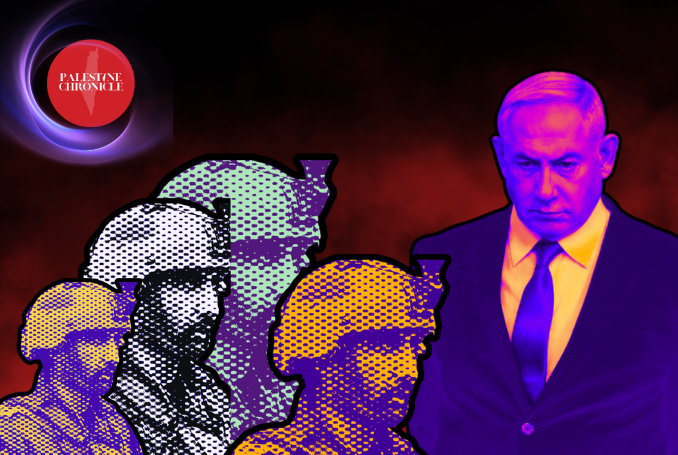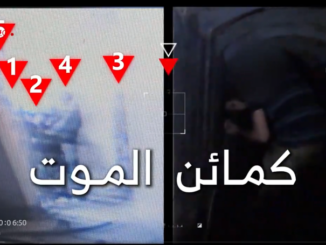
Netanyahu faces rising backlash from inside the military over his handling of the Gaza war and prisoner negotiations.
More than 11,000 influential Israelis—including reserve soldiers, military veterans, former officials, academics, educators, medical professionals, and public figures—have signed various petitions demanding an immediate ceasefire in Gaza and the return of Israeli captives.
These figures are based on publicly known initiatives reported by Israeli media and likely represent only a portion of the broader, growing dissent within Israeli society.
Israeli media reported that hundreds of Israeli soldiers have signed two new petitions calling on Prime Minister Benjamin Netanyahu to halt the war on Gaza and secure the return of prisoners held in the Palestinian enclave.
This growing movement within the Israeli military has been publicly supported by families of prisoners, ministers, former army commanders, academics, activists, and opposition party leaders.
According to Israeli news outlet Walla, the petitions state that Netanyahu is inciting against law enforcement, endangering officials’ safety, and attempting to obstruct investigations into corruption allegations involving himself and his associates. The petitions also warn of a growing crisis within the army.
Notably, hundreds of reserve soldiers from the Offensive Cyber Unit, the Special Operations Command, and Unit 8200 have joined calls to end the war.
Yedioth Ahronoth reported that more than 200 Navy soldiers and veterans submitted a petition on Tuesday calling for the return of Israeli prisoners, even if it requires ending the war.
Approximately 150 Israeli soldiers from the elite Golani Brigade have signed a similar petition, emphasizing their support for ending the war to secure the captives’ release.
Over the past 48 hours, a growing wave of dissent has spread across sectors of Israeli society. Thousands of military reservists and civilians have signed a letter backed by hundreds of Air Force reservists, including active-duty pilots, calling for an immediate ceasefire and return of captives.
This includes 1,525 members of the Armored Corps, more than 1,600 veterans from the Paratroopers and Infantry Brigades, 150 former Navy officers, 100 reserve military doctors, and thousands of reserve soldiers from various units.
By Monday, around 1,000 reserve and retired Israeli Air Force soldiers—including active-duty pilots—had also signed a letter supporting the ceasefire call. These developments have been mirrored by civilian sectors: 3,500 Israeli academics, over 3,000 education professionals, and more than 1,000 parents have signed similar petitions demanding an end to the war and the return of captives.
In response, Israeli Army Radio reported that Golani Brigade soldiers expressed their support for the pilots’ April 9 letter demanding the captives’ return, even at the cost of halting the war.
Military and Political Fallout
Amid these developments, Israeli Chief of Staff Eyal Zamir reportedly held emergency meetings to address the protest letters.
According to Israel’s Channel 12, the military leadership is concerned about the long-term consequences of such dissent and has moved to prevent active-duty reserve soldiers from participating in protests, citing the misuse of military symbols for political ends.
While the Israeli army leadership insists that operations in Gaza continue with full support from top security officials, they also acknowledged the risk of further internal rifts.
The Israeli army reportedly plans to hold talks with soldiers who signed the petitions in an effort to contain the unrest. Military sources told Yedioth Ahronoth that disagreements within the army are evident and that there is growing concern over the protests’ potential spread.
Meanwhile, the Israeli Broadcasting Authority (KAN) cited a government source stating that Israel may consider certain concessions in ongoing Gaza negotiations, but not at the cost of abandoning the objective of dismantling Hamas.
Israeli Prime Minister Netanyahu told families of prisoners that intensive negotiations are underway for their return. However, he also condemned the soldiers’ petitions as a refusal to serve and accused the signatories of weakening Israel during wartime.
Netanyahu and several cabinet members pledged to expel reservists who signed the letters, labeling the move an act of rebellion and disobedience.
Since the war began on October 7, 2023, Israel has mobilized around 360,000 reserve soldiers.
(PC, AJA)









Protests and petitions would likely not stop the ICC wanted war criminal and his gangs from the ongoing war and crimes.
The crime minister of Israel knows he is deep down in a deep hole and he is damn sure he cant ever maneuver his way out of the this current failed project.
The score card looks terribly bad for his ego.
He would rather drag others to join him down by keeping the wars going.
Those Israelis against his crimes should rather leave if they cant stop him and his crimes against humanity, not only the Palestinians.
Israelis should leave now when leaving is quite easy.